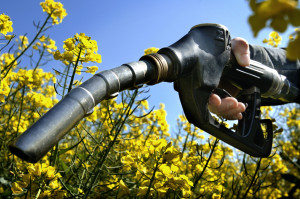IFPRI also applied new methodologies developed by the AgFoodTrade project to study specific policy questions such as the EU biofuel policies. In April 2009, the EU adopted a Renewable Energy Directive that required member states to use renewable resources, including biofuels, for 10 percent of their transport fuel needs by 2020, and to comply with a set of environmental sustainability criteria. While the criteria included a minimum rate of direct greenhouse gas emission savings and restrictions on the type of land that could be converted for biofuel production, the land-use criterion only addressed direct land-use changes. Consequently, the EC asked IFPRI in 2009 to analyze the impact of indirect land-use changes caused by biofuel production.
RESULTS
At the EC’s request, IFPRI researchers working with PIM produced two reports on EU biofuel policies: Global Trade and Environmental Impact Study of the EU Biofuels Mandate and Assessing the Land Use Change Consequences of European Biofuels Policies. Both of these reports have been widely discussed and cited since their release in 2010 and 2011 respectively. The first report showed that increasing first-generation biofuel consumption above a 5.6 percent threshold would greatly reduce the environmental sustainability of the policy. The second report determined that the mandate was also likely to produce significant emissions through indirect land-use changes. It provided specific estimates for different crops and impact pathways and recommended that either the overall scope of the mandate be limited or the threshold for greenhouse gas savings be increased for all biofuel crops.
OUTCOMES
- In April 2015, the EU Parliament voted in favor of amending the Renewable Energy Directive and related legislation to reduce the risk of indirect land-use change. IFPRI’s research helped inform the Parliament’s discussions and decision. The amendment limits the EU member states’ consumption of biofuels grown from local or foreign agricultural land to 7 percent of their total biofuel consumption. The reporting structure for indirect land-use changes was also enhanced. IFPRI estimated that this significant amendment would reduce CO2 emissions by 13 million tons due to land-use changes in developing countries, save 800,000 hectares of cropland, and produce enough food to feed 70 million adult males annually at the global level.
- Based on IFPRI’s evaluation, the EU Parliament’s Environment Committee advocated for limiting the proportion of food-based biofuels to 5 percent. In 2013, based on the committee’s legislative report, which was influenced by IFPRI’s work, the EU Parliament voted to support the findings and recommendations by 356 to 327 votes.
- IFPRI’s biofuel reports received extensive media attention and were supported by the EC and various nongovernmental organizations. Despite criticism by many EU biofuel producers and lobbying groups, one EU industrial lobby (COPA/COGECA) cited the reports as being the “best available science,” showing that the methodology and science behind the reports are supported by many, including some within the industry.
For more information on IFPRI's work in partnership with the EC, please go to this brochure.



